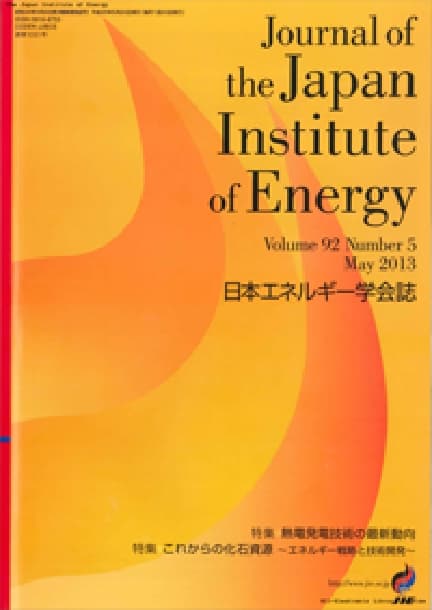Production of Hydrocarbons in Fischer-Tropsch Synthesis (FTS) with Cobalt-based Catalyst (II): Effect of Promotor, Different Preparation Method of Catalyst, and FTS Temperature on Primary Kerosene Yield and Carbon Mass Balance
Kazuhiro KUMABE, Toshiki IIO, Hiroshi MORITOMI
pp. 54-62
DOI:
10.3775/jie.103.54Abstract
The Fischer-Tropsch synthesis (FTS) of syngas (34 vol% H2, 16 vol% CO, and 50 vol% N2) was carried out using cobalt-based catalysts in order to produce hydrocarbons (HCs) equivalent to kerosene, which is used as an alternative aviation fuel. The FTS had been conducted for a duration of 4.5 h in a downdraft continuous-flowtype fixed-bed reactor under temperatures of 225 and 230 °C, a pressure of 3.0 MPa, and W/F of 3.7 g h mol-1. The effects of the promotor included in the catalysts, their different preparation method, and the reaction temperature on the FTS were studied by focusing on primary kerosene yield and the carbon mass balance. Chromium and nickel included in the catalysts increased the overall CO conversion and selectivity of CO to the C11-C14 HCs equivalent to kerosene. The overall CO conversions and selectivities to kerosene for the FTS using the catalysts impregnated sequentially with cobalt and chromium were higher and lower, respectively, than those impregnated simultaneously. The higher reaction temperature increased the overall CO conversion and selectivity to kerosene.
Readers Who Read This Article Also Read
Journal of the Japan Institute of Energy Vol.103(2024), No.5
ISIJ International Vol.64(2024), No.14










